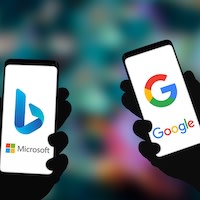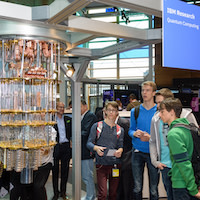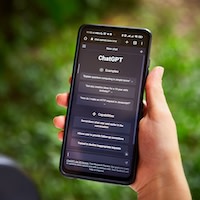
Posted October 02, 2023
By Ray Blanco
The AI Toy Store Is Now Open
It’s official. Simply having an AI chatbot isn’t enough.
While just about everyone was impressed by the debut of ChatGPT in November of last year, the original public Large Language Model (LLM)-based question-and-answer bot has gained some stiff competition.
Google released their own chatbot Bard shortly after the release of OpenAI’s ChatGPT and Microsoft bolstered their Bing search engine with generative AI technology, much of it coming directly from OpenAI themselves.
After less than a year, we’re seeing innovations left and right by many of the big tech players in order to separate their artificial intelligence applications from the rest of the pack.
The biggest limitation on ChatGPT has been its database cutoff of early 2021. Unable to access real-time information off of the internet, all of the chatbot’s responses were based on its sizable but finite set of information.
It would be unable to comment on current events or work off of any discoveries made in the last two years.
That was until last week.
Paid users of ChatGPT Plus can now select the “Browse With Bing” option while creating queries in ChatGPT and receive responses using up-to-date information from the internet.
On top of creating a much more useful and powerful tool, this move represents strides made in the safeguarding the technology, as a large part of the decision to keep ChatGPT “offline” was to prevent the uncontrolled development of the technology.
Another major player in tech also announced a new spin on generative AI tech last week in hopes of setting themselves apart and becoming a bigger player in this tech boom.
Meta, who recently launched their own open source Large Language Model called LLaMa 2, said that as soon as next month they will roll out as many as 30 different “personas” of AI chatbots across Instagram, Facebook, and Threads.
According to company insiders, the chatbots will have distinct personalities, such as one that offers travel tips in “the style of a surfer” as well as one that talks like Abraham Lincoln.
All of Meta’s chatbots will be built off of their LLaMa 2 LLM and should help establish the company’s association with artificial intelligence.
Most of the biggest tech companies have shown their commitment to generative AI through high-dollar investments and partnerships, including last week’s announcement of the collaboration between Amazon and Anthropic, but recently we’re seeing these efforts start to bear fruit as products being offered to consumers.
Here are the top stories I’m looking at this week…
 |
The US Is Planning Its First Fusion Plant, And It Could Generate Pollution-Free Power By 2035The Biden administration hopes to create a commercial nuclear fusion facility within 10 years as part of the nation's transition to clean energy. Read more… |
 |
Global Use Of Oil Could Peak This Decade: IEAGreenhouse gas emissions and the global demand for fossil fuels could peak this decade. Read more… |
 |
Microsoft CEO Says Google’s Agreements With Apple Unfairly Harmed BingSatya Nadella says it will take more than AI to check Google’s advantage in internet search. Read more… |
 |
MIT Researchers Develop Circuit To Improve Quantum ComputingThe team achieved 99.99 percent accuracy with a single-qubit gate and 99.9 percent accuracy with a two-qubit gate. Read more… |
 |
Now You Can Speak To ChatGPT — And It Will Talk BackYou can now speak aloud to ChatGPT and hear the artificial intelligence-powered chatbot talk back. Read more… |

